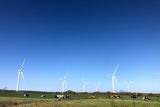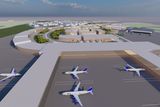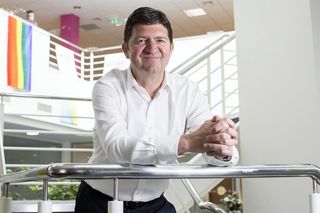Lower charges would 'stifle' Dublin Airport growth, claims DAA
DAA chief executive Kevin Toland
A proposal to cut charges at Dublin Airport by 22pc over the next five years will "stifle passenger growth" there, the Dublin Airport Authority (DAA) has claimed.
Earlier this year, the Commission for Aviation Regulation (CAR) said it's planning to reduce passenger charges at Dublin to €8.35 by 2019 from the current maximum level of €10.68.
That would have a likely knock-on effect for consumers, helping to lower the cost of their air fares.
Commissioner Cathal Guiomard argued that the reduction has been proposed because the running costs at Dublin Airport are lower than what was predicted back in 2009.
The DAA has argued that the maximum fee it should be able to levy should be raised to €13.50, but has insisted it wouldn't charge this rate.
DAA chief executive Kevin Toland said earlier this year that he would not raise airport charges beyond the rate of inflation for five years.
The CAR has forecast that passenger numbers at Dublin Airport will grow by 3pc per annum over the next five years, hitting 24m by 2019.
It said that an improving economic outlook, rising passenger numbers and lower investment costs all promoted the decision to lower the airport charge cap.
But the DAA, which has submitted its formal response to the draft determination, has argued that traffic growth will be damaged "by the regulator's failure to allow essential investments aimed at improving facilities at Terminal 1, growing passenger numbers, expanding the use of the main runway, and delivering additional aircraft parking areas".
"The aviation regulator's short-sighted decision to veto key investments needed to allow Dublin Airport to win additional business will constrain passenger growth over the next five years and significantly impede the strategic development of the airport," claimed Mr Toland.
"The regulator has opted for stagnation at a time when we should be expanding rapidly."
In making its draft determination, the CAR has allowed for €308m in capital expenditure by the DAA over the next five years.
An additional allowance of €296m will be permitted for the construction of a new parallel runway at Dublin if passenger numbers hit 25 million.
Currently, construction of a second runway would be funded once annual passenger numbers at Dublin touch 23.5m.
The DAA said increasing the passenger threshold required for a second runway to 25 million will push delivery of that new runway "into the next decade".
The DAA said that the CAR has vetoed almost €170m of airport upgrades in its draft determination.
The DAA said those measures include projects specifically aimed at increasing passenger numbers and investments in new security features that are required under law.
Mr Toland has also insisted the CAR's decision goes against the new National Aviation Policy.
He claimed the decision to "ignore" evolving Irish Government policy for the aviation sector was "inexplicable".
"The Commission for Aviation Regulation had to be aware of the draft National Aviation Policy, which was published in May, and one must therefore ask why the regulator chose to ignore the broad Government policy priorities that are clearly set out in the document," he said.
The Irish Aviation Authority (IAA) has claimed the proposed lower airport charges could have adverse effects on security services at the airport.
The DAA reckons it will need to increase the number of security staff to 600 from 550, while the CAR thinks the figure should be lowered to 500.
The IAA said reducing the security staff headcount could jeopardise Dublin's US pre-clearance facility.
"Charges at Dublin Airport are already lower than the European average and the regulator's suggested further reduction is both unwarranted and uneconomic," Mr Toland said yesterday.
Join the Irish Independent WhatsApp channel
Stay up to date with all the latest news














